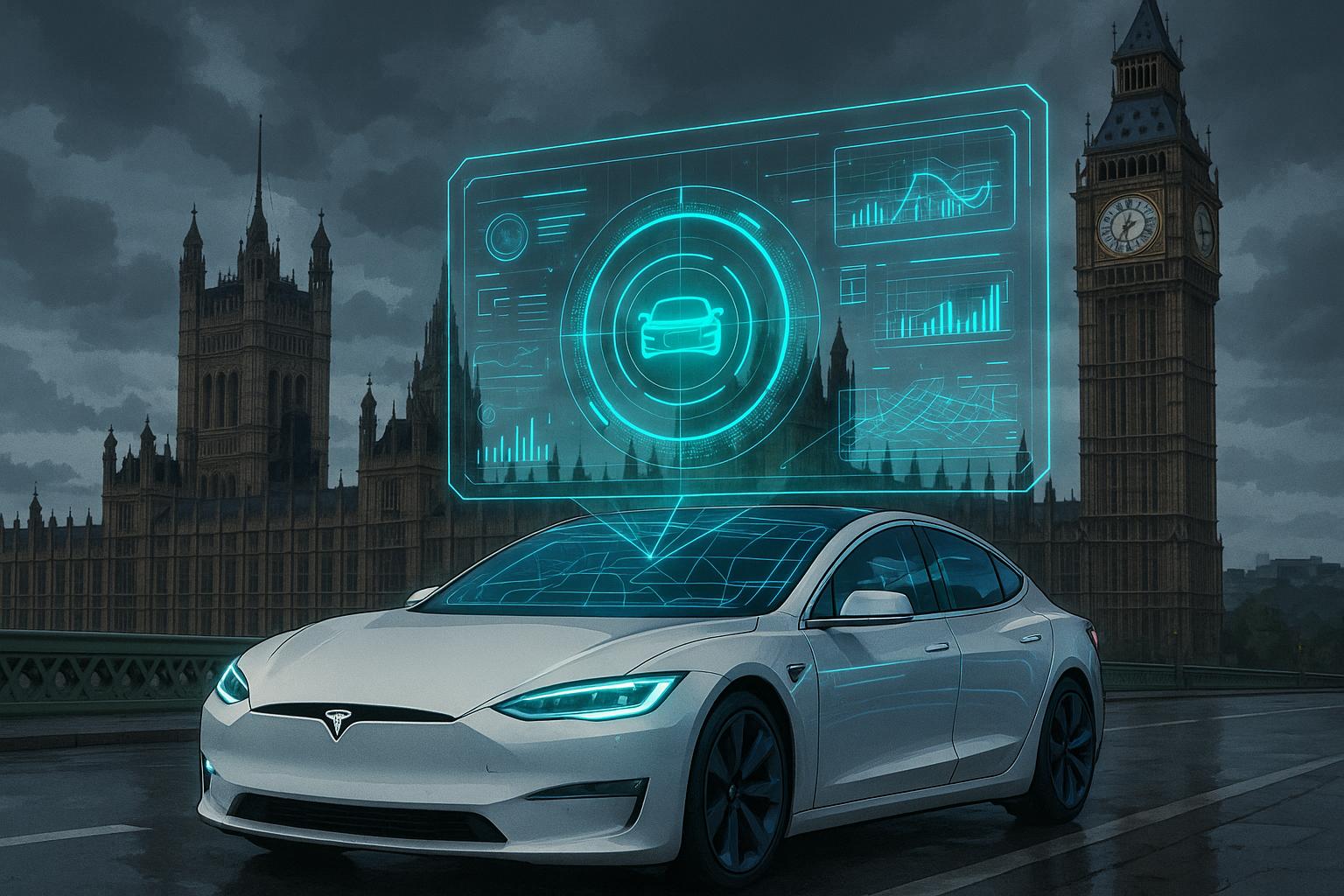Elon Musk’s Tesla has made significant strides in the development of automated vehicles, actively engaging with UK government officials to push for accelerated approval for its self-driving technology. Lobbyists for the electric car manufacturer have met with civil servants from the Department for Transport (DfT) multiple times, advocating for a fast-track process to permit the deployment of autonomous vehicles (AVs) on British roads. Meetings held between August and October, surfaced through a Freedom of Information request, revealed that Tesla's priorities include securing regulatory clearance for its vehicles, especially as the UK government shifts its approach towards green technologies in transport.
In these discussions, concerns have been raised regarding safety, especially the issue of accountability should a self-driving vehicle malfunction. Emma Ward, the DfT’s director-general for road transport policy, noted a pervasive "nervousness around safety," highlighting that further work is needed to delineate responsibility in the event of operational failures. Despite Tesla’s ambitious goals, including CEO Elon Musk's aspirations of achieving fully autonomous driving—classified as "Level 5" automation—Tesla vehicles currently operate at a more limited "Level 2," which necessitates driver supervision for safe operation.
The UK government is not alone in its cautious stance. New legislation appears to be on the horizon, which may prevent car manufacturers from labelling their vehicles as "self-driving" or "driverless" unless they have undergone approved testing. This strategy aims to address ongoing safety concerns and combat potentially misleading marketing practices that could contribute to public misunderstanding of these technologies. In fact, while Tesla has marketed its "Full Self-Driving Capability" feature since 2016, it has yet to be activated in the UK while awaiting necessary regulatory approval.
Safety and regulatory issues concerning Tesla's technology have become more pronounced with recent investigations into the reliability of its Full Self-Driving (FSD) system under challenging conditions, such as fog and bright sunlight. The US regulator has scrutinised Tesla’s self-driving features, which have historically struggled in diminished visibility scenarios—issues acknowledged in the company's own user manuals. As these investigations unfold, Tesla remains engaged with regulatory bodies to address these points of concern.
The broader landscape of self-driving technology regulation in Europe also faces significant delays, as indicated by recent comments from a senior Tesla executive. Marc Van Impe, the company's outgoing head of global vehicle automation and safety policy, lamented that crucial decisions on governing FSD technologies could be postponed until as late as 2028. This delay positions the UK as a potential laggard in the adoption of self-driving cars, raising questions about the nation’s competitiveness in the evolving automotive market.
Additionally, Musk has announced plans to roll out Tesla's FSD technology across Europe by the end of 2024, contingent on receiving the necessary regulatory approvals. The situation remains dynamic, as Tesla continues to demonstrate its systems to European officials, with hopes of rapid progression through legislative hurdles. However, with ongoing safety concerns and regulatory scrutiny, the path towards widespread acceptance of autonomous vehicles in the UK is fraught with challenges that need to be carefully navigated to ensure public safety and confidence.
##Reference Map:
Source: Noah Wire Services
